External Feng Shui Elements You Ignore at Your Peril
Introduction
We already know the superior feng shui attributes of a house. These are inherent qualities of a property that are hard to modify. That is why we must focus on the architecture of the home first.
However, your home can still be vulnerable to terrible external feng shui elements out of your control. Some of them could be poison arrows.
Hence we must next pay attention to the surroundings and see how these structures might affect a property’s feng shui.
Fences
You may have underestimated the role of fences, but they are guardians and protectors of your home.
They play another role in helping to distribute the flow of qì into your home.
For example, T-junction roads or sharp corners from your neighbor can be resolved by building fences. However, fences can cause more problems if incorrectly constructed.
Consequently, incorrectly constructed fences can pose severe problems for your house.
Fence Design that Points Inwards
These fences are usually designed with security in mind; to prevent people from trespassing on the place.
However, fences of such a utility usually have the metal poles’ upper tip pointing inwards to the house.
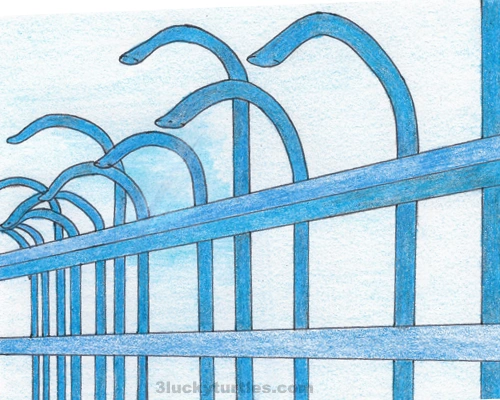
Fences with metal poles pointing inwards symbolize animal claws trying to tear up a house.
Why is such a design affect good feng shui? They stand for a powerful qì of the Fire element.
Metaphorically, the design looks like aggressive animal claws trying to tear up your home.
A proper feng shui design would have the tips pointing upwards instead. It is best to avoid this fence design at all costs.
Old Fence Walls with Cracks or Gaps
Concrete walls not built to last will show cracks due to weather and damage.
However, gaps are purposely included in the fence design aesthetically.
The same scenario applies to fences having gaps design.
In feng shui, a gap or a crack is known as a Wind Gap.
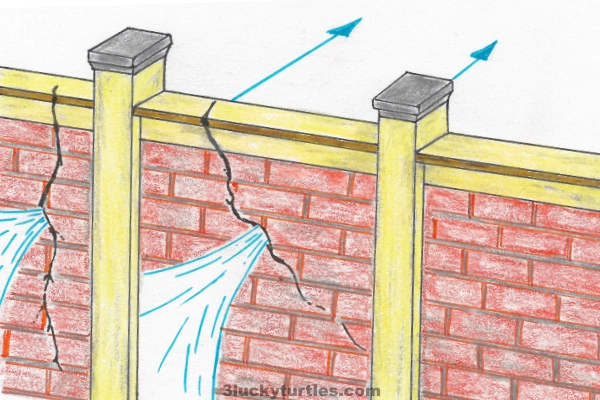
Crack in the fence can induce wind gaps which then cause pockets of high-intensity wind to flow through. This high-intensity wind is negative energy that may hit your house.
With such fence conditions, negative qì will be aggressively hitting your home during windy weather.
It is essential to fix the cracks on your fence and avoid buying properties with a fence that has gap designs.
High Fence
A high fence gives greater privacy for a house from some nosy neighbors. Unfortunately, high walls are subduing the level of qì in your home.
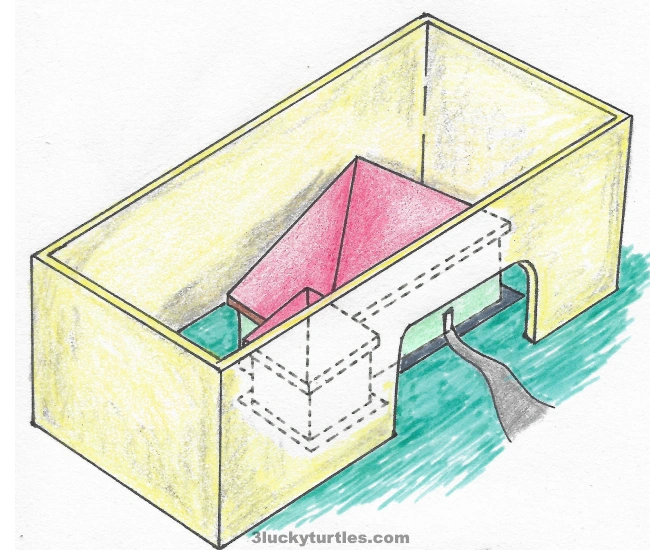
A house with a high fence provides great privacy but suppresses qì level of the house.
Having an inert level of qì in a property is bad feng shui.
Inert qì means lack of life, deficit growth, and minimal development among the tenants.
Fence too Close to the House
A property where the fence is far out is very desirable in feng shui.
If the fence is too close to the side of the house, qì will get trapped and unable to circulate adequately.
Under such a situation, home occupants will have problems getting ahead in their life.
Home Gates Design
The gate to your home is known as the Mouth of Qì.
Nourishing qì energy enters a home through the gate and goes into the main door.
The gate should be in an area favorable to the flow of qì.
Whether the gate door opens in or out is not essential in feng shui.
House with More than 1 Gate
For good feng shui, there should always be only one gate to the house.
If a property has more than one gate, there will be confusion in the flow of qì to the property.
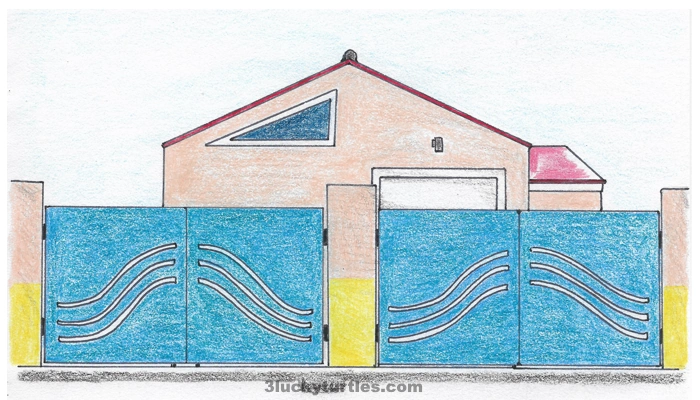
House with more than two gates will confuse the flow of qì into the house.
A cure for such a design is ensuring only one gate is more significant and higher than the other.
Curved Driveway
A curved driveway is sort of a grandeur design for a house.
However, if a driveway curves inwards toward a house, it is like a blade cutting into the home. It is a form of shā qì in feng shui!
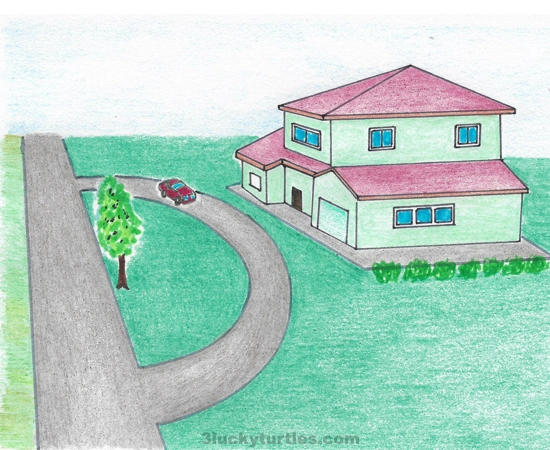
A curved driveway like this is considered shā qì as it looks like a blade cutting into the home.
Water can be positioned correctly to slow down the qi so that shā qì will not hit the home.
Your Neighbors
The environment where a property is residing is essential in feng shui.
I am talking about the surroundings of the neighborhood.
Apart from your neighbors, there are a few things to look out for.
Pay attention to specific buildings or structures that are nearby.
Some of them may not be good for the property.
Cemetery
Few people would want to live near or next to a cemetery.
The cemetery has too much yin energy and qì energy from the dead.
You do not want to live in a place overwhelmed with yin energy.
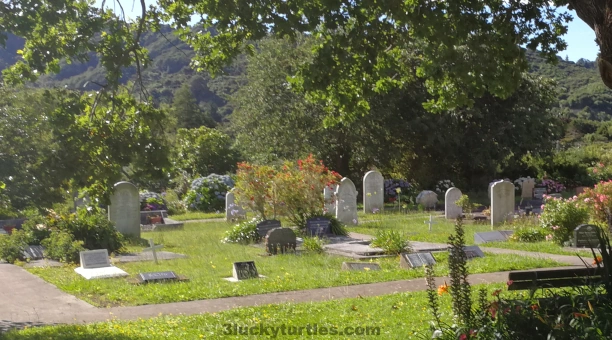
A well-kept cemetery may not contain negative qì energy.
However, if cemeteries are well kept, these places may not embody negative qì energy.
Not wanting to live near a cemetery is more of a psychological issue.
A physical barrier between the home and the cemetery may help diffuse the yin energy from the graveyard. Such barriers are a busy road or dense rows of trees.
School
School is always busy and noisy.
Traffic on roads to school is also busy during peak hours when parents are coming to drop off and pick up their children.
Therefore, a school is a Yang area.
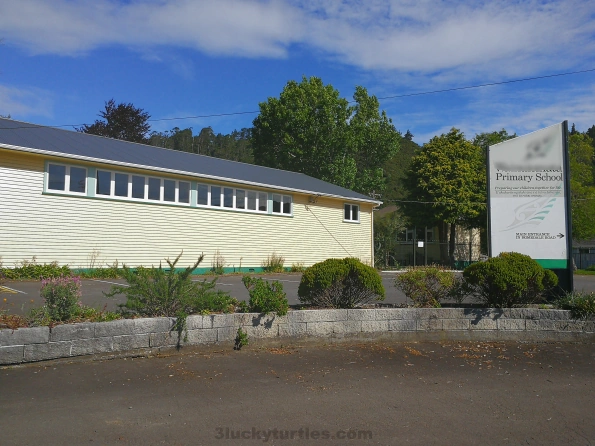
You and your family can be overexposed to yang energy if the home is too close to a school.
Most people would think that living near a Yang area is healthy.
But…
Feng shui is all about having a balanced yin and yang energy.
Being overexposed to yang energy is not great for you and your family.
Even if you are taking feng shui off consideration, common sense will tell you that the school area may be disruptive to your life. This means it is not suitable for the health of the residents near schools.
Temples and Churches
These are spiritual places. Religious and holy sites are not places for attraction between people.
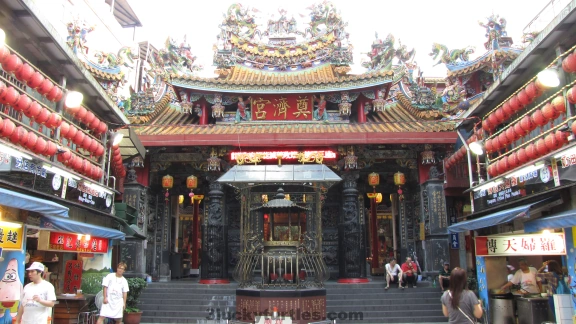
A temple is a spiritual place and has Fire qì.
Gas Station
The element of Fire represents gas stations.
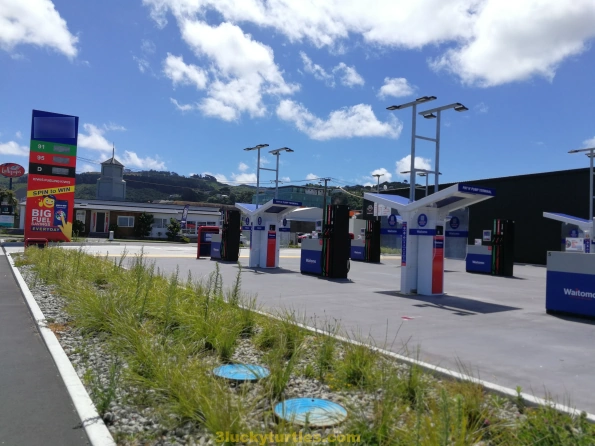
A gas station embodies a fierce Fire element.
A property near the Fire element symbolizes loneliness and a lack of development.
The cure is to position water elements within the house compound.
Power Substation
Power substations are Fire element structures.
If a Fire element benefits your property, then there is nothing wrong with living next to a power substation.
However, the electromagnetic fields from the substation may be a cause of concern health-wise even though substations have no substantial impact on feng shui.
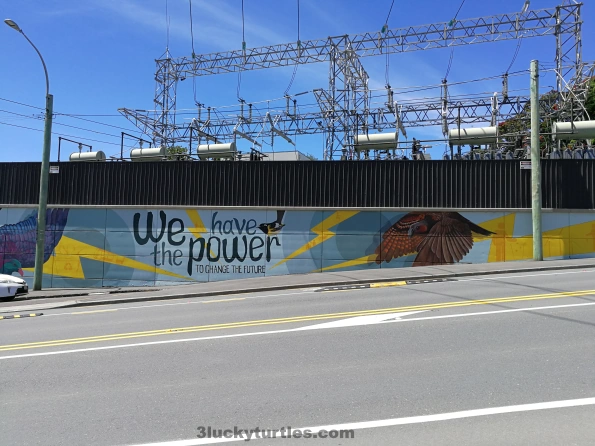
A power substation is a Fire element structure.
Pedestrian Bridge
A pedestrian bridge is a negative structure because it is a form of shā qì.
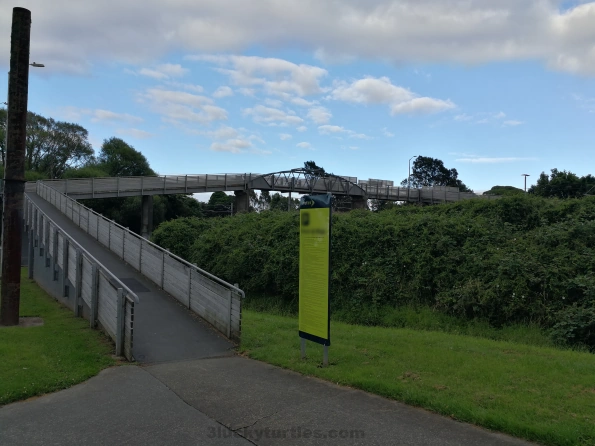
A house too near to such a pedestrian bridge is not good feng shui as a pedestrian bridge is considered shā qì.
Avoid buying a house that is near such a structure.
Pylons
Pylon is a dangerous environmental feature in feng shui and is another form of shā qì.
Pylons exert an extremely negative effect on your house if it is in the position in front of the main door and within 100 feet radius of the property.
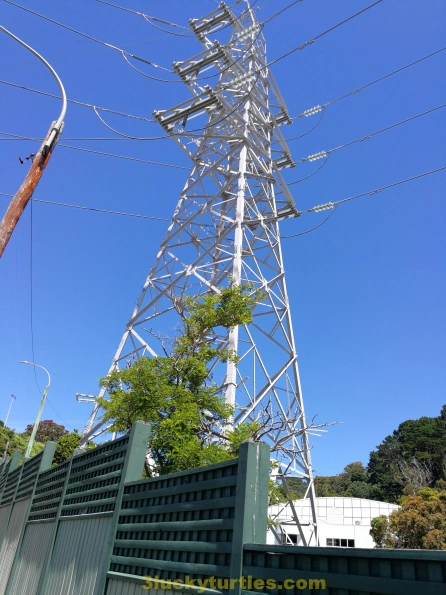
A pylon embodies negative energy or shā qì.
Pylons are an enormous problem to fix due to their size and the impossibility of relocating them.
However, a strategic location of water placement can reduce the negative energy from the tower since pylons are Fire elements.
Water elements can neutralize the Fire element. Nonetheless, the cure has to be done right with consultation from a feng shui practitioner.
Nonetheless, living near such a structure from both feng shui and health perspectives is imprudent.
So it’s best to pass up on such a house.
Curved Flyover
This structure is a known shā qì in feng shui and is called Wān Dāo Shā ( 弯 刀 殺 ) in Chinese, which means curved blade slash.
Why does this structure a cause of concern? Because it is nearly impossible to fix.
If possible, avoid purchasing a house or flat near the curve.
If the property is away from the flyover but within proximity of a flyover it is still fine.
Nevertheless, to be on the safe side, it is better to stay away from any property near curved flyovers.
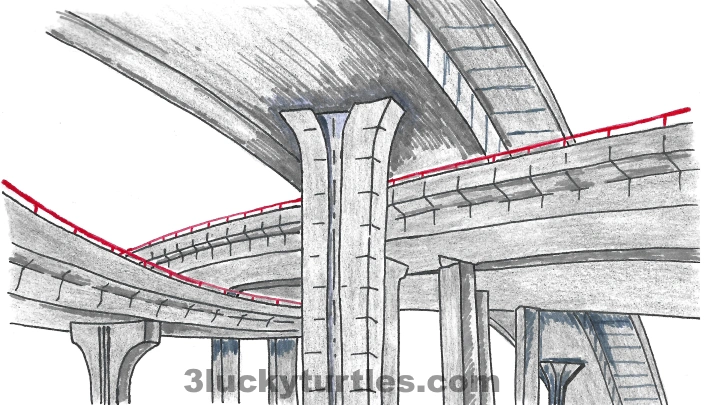
A curved highway overpass is like blades hitting your front door and can cause energy imbalance in your property.
Gap Between Buildings
There is a term called Wind Gap (天 斩 煞) or translated as a heavenly slash in the realm of feng shui.
In this situation, you will be affected if you live in one of the building units or a house facing a wind gap between two other buildings.
A wind gap is a familiar trait in big cities with plenty of high-rise buildings (Hong Kong comes to mind if you have been there).
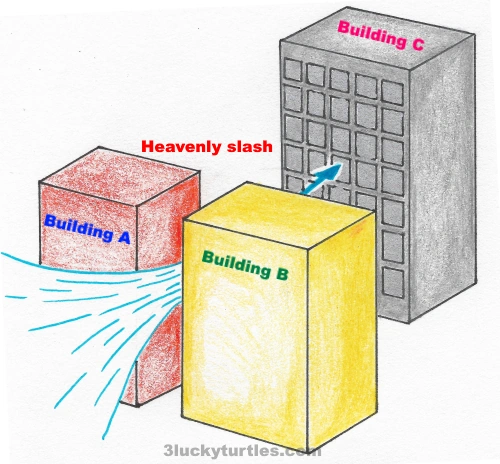
Building A and B created a wind gap and drove high-intensity wind to flow toward Building C. The hit of this high-intensity wind is considered poor feng shui for Building C.
The width of the gap is usually very narrow. On a windy day, air will flow through the opening and becomes increasingly compressed. The intensity of the wind increases due to the narrow gap.
Preaching this scientifically, we called this the tunnel effect.
This phenomenon is not a good feng shui indicator as the strong wind represents an undesirable negative qì.
Fire Hydrants
Fire hydrants are familiar fixtures on streets and may look unremarkable in the first place.
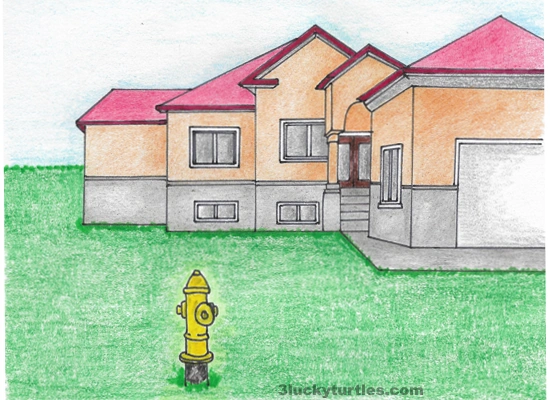
A fire hydrant in front of a house or shop is not just an eyesore but also disturbs the flow of qì into the building.
However, it can be a problem in feng shui if it is in front of the main door of your business or home.
It is not just an eye sore but also disturbs the flow of qì from entering the building.
Nonetheless, modern fire hydrants in some countries are fixed underneath the ground.
This kind of design will not affect the feng shui of the property.
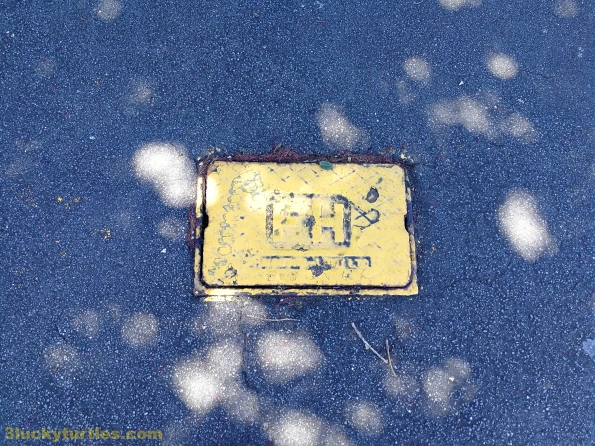
Modern fire hydrants are fixed underneath the ground and should not affect the feng shui of a property.
Final Words
After reading this, you may ask, does a police station nearby affect my property? What about a drain right beside a property?
The list will go on and on.
So it is impossible to go through all of them in an article.
However, this article has covered the most important ones to avoid and pay attention to.
So start observing your surroundings and take note of structures that may affect your desired property!
